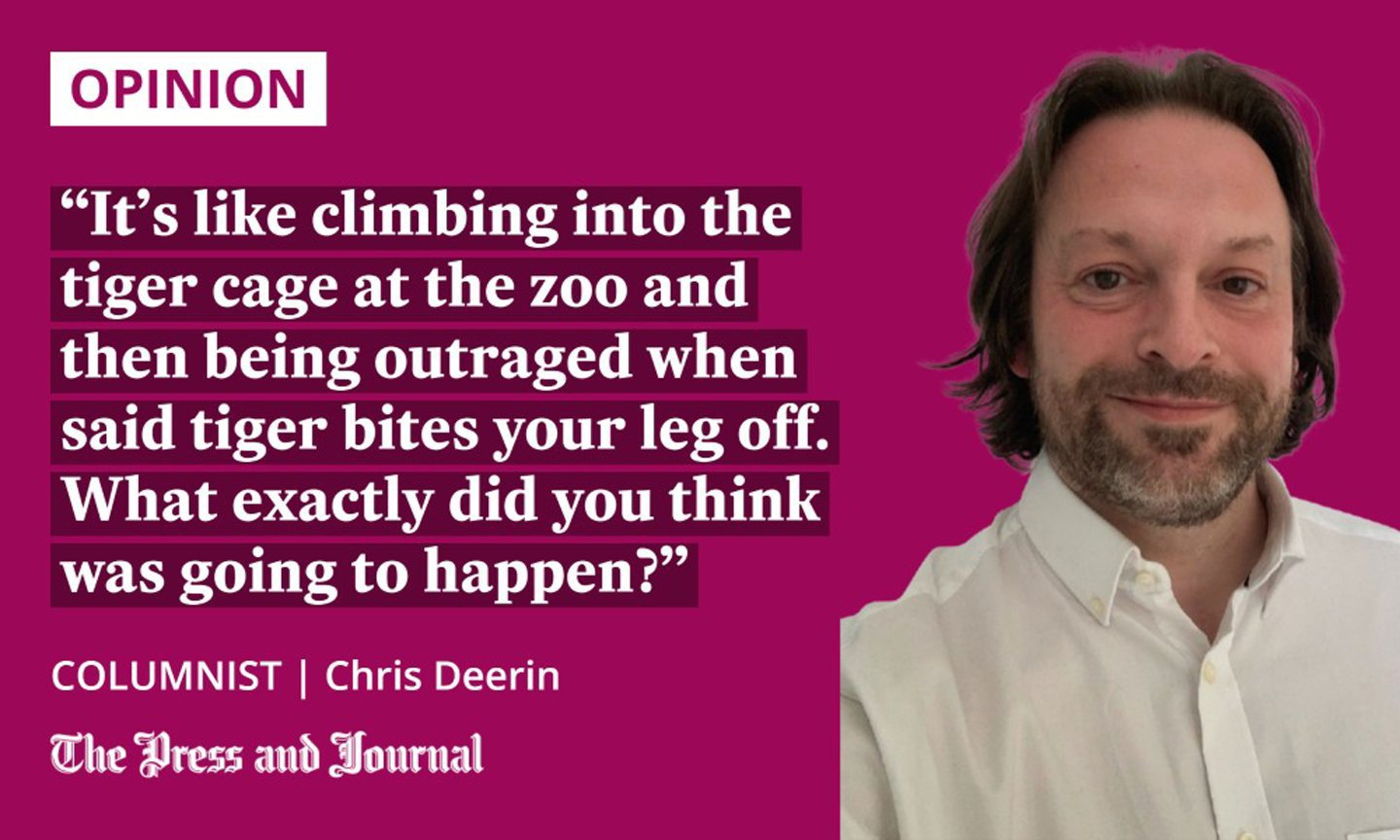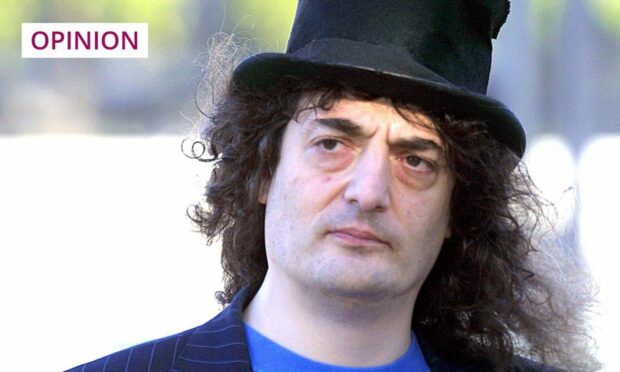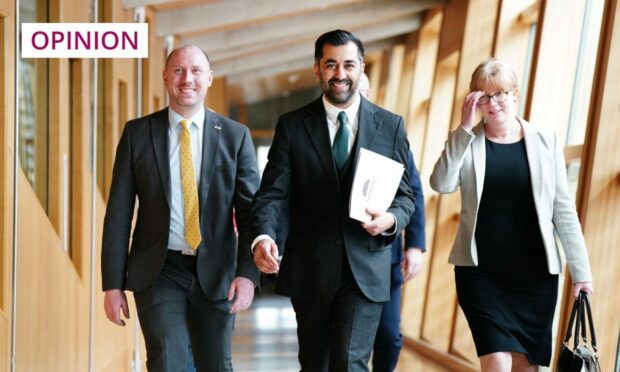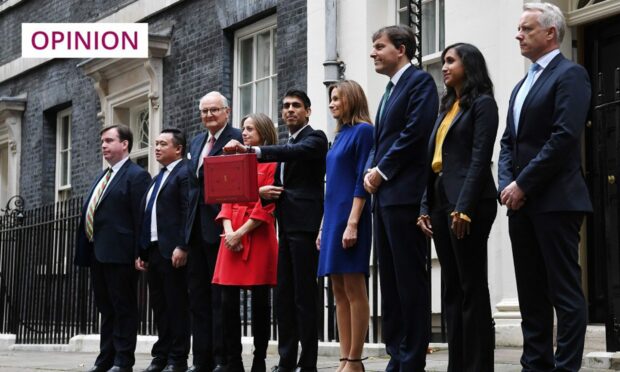There are two things to which the comedian Jerry Sadowitz owes his fame and notoriety.
The first is that his live act is among the most uncomfortable and excruciating experiences known to man. He holds a black belt in offensiveness, not so much crossing the line as refusing to acknowledge it exists.
The second is that there is a reasonable chance he will take his penis out on stage. Sadowitz, now 60, has spent decades saying the unsayable, doing the unthinkable, and, as and when it suits him, displaying his tadger. It is a form of punk comedy that is not for everyone – or, as his Edinburgh Fringe show was titled, Not For Anyone.

Sadowitz is regarded as a genius by many of today’s greatest comedians, precisely for his compulsion to shock. He is very, very funny, if you can stomach that kind of thing – bleak, dark and distorted.
There is nothing inauthentic or cheap about it, it is who he is: a strange and fearless little man with a top hat and straggly hair, with a long career of scandals, cancellations, and sometimes even physical violence behind him. He will not play your game, only his own.
Knowing all this – and anyone who works in the arts does know it – it is astonishing that the management at Edinburgh’s Pleasance first agreed to host his Fringe show – with advance warning of “strong language and themes some may find distressing” – and then, when some members of the audience walked out and complained, decided suddenly to cancel it.
It’s like climbing into the tiger cage at the zoo and then being outraged when said tiger bites your leg off. What exactly did you think was going to happen?
Sadowitz makes an unlikely yet perfect martyr
There is – there has to be – a place for Sadowitz’s nihilism, and there is certainly an audience for it. Stretching and snapping the limits of good taste, swaggering across the edge of acceptability, exposing the cant and hypocrisy of polite society – can you listen to another Sunak-Truss debate without half-wishing for an earthquake? – are among the most important functions of comedy.
At the heart of it is the right to free speech, whether we agree with the speaker or not. We are currently in danger of policing ourselves to death and, so, if Jerry Sadowitz makes an unlikely martyr then he is also, in his way, a perfect one.
— Jerry Sadowitz (@RealJSadowitz) August 14, 2022
Modern society seems to exist in a fit of pique, to be suffering from a relentless, Victorian attack of the vapours over what is and what is not acceptable. There is sometimes good reason for this – ensuring that minorities are treated fairly, and that outdate attitudes are challenged and defeated.
But, we have all seen how things have gone too far: misogynistic young men, using trans rights as cover, turning up at women’s events to vocally and physically attack the attendees; companies and organisations such as universities – the latter of which at least should know better – forcing people from their jobs over their personal views on gender identity; death threats on social media to leading female politicians and writers who speak out on women’s rights. It risks ending, as it did last week for poor Salman Rushdie, with a deluded man taking brutal revenge with a knife.
We live in unusually divided times
Tolerance of difference, and resolving those differences through debate and compromise, are at the heart of the democratic existence.
Comedy matters – not just as a vent for our frustrations, but as a challenge to the po-faced, box-ticking behaviour police
Telling people what they must think, and then forcing them to accept rules with which they do not agree, with the threat of violent retribution hanging over them, is the mark of the bully and the totalitarian. It is the opposite of what modern Western civilisation is supposed to be about. And it will not do.
We must accept that we live in unusually divided times. Whether the issue is Brexit, Scottish independence, trans and women’s rights, Donald Trump, US gun control, Russian aggression against Ukraine, or the Chinese-led East versus the American-led West, people are adhering hard and fast to positions that kindle abuse and aggression and threaten worse.
Everywhere one looks, there are sharp, slick boosters exploiting the moment for personal advancement, stoking the flames and pitting citizens against one another.
The failure of the democratic model is too chilling to consider. At that model’s heart is the right of all of us to hold competing views that we can express freely, that we are willing to debate openly, and that will not bring the mob – exploited by the cynical and the ambitious – down on our heads.
This is why Jerry Sadowitz matters – he is, in his way, a usefully extreme test case. It is why comedy matters – not just as a vent for our frustrations, but as a challenge to the po-faced, box-ticking behaviour police, and for its assertion that irony and the ability to snap free of the leash are among our greatest virtues.
If one must make the case for an honourable member, let it be Sadowitz’s.
Chris Deerin is a leading journalist and commentator who heads independent, non-party think tank, Reform Scotland








Conversation